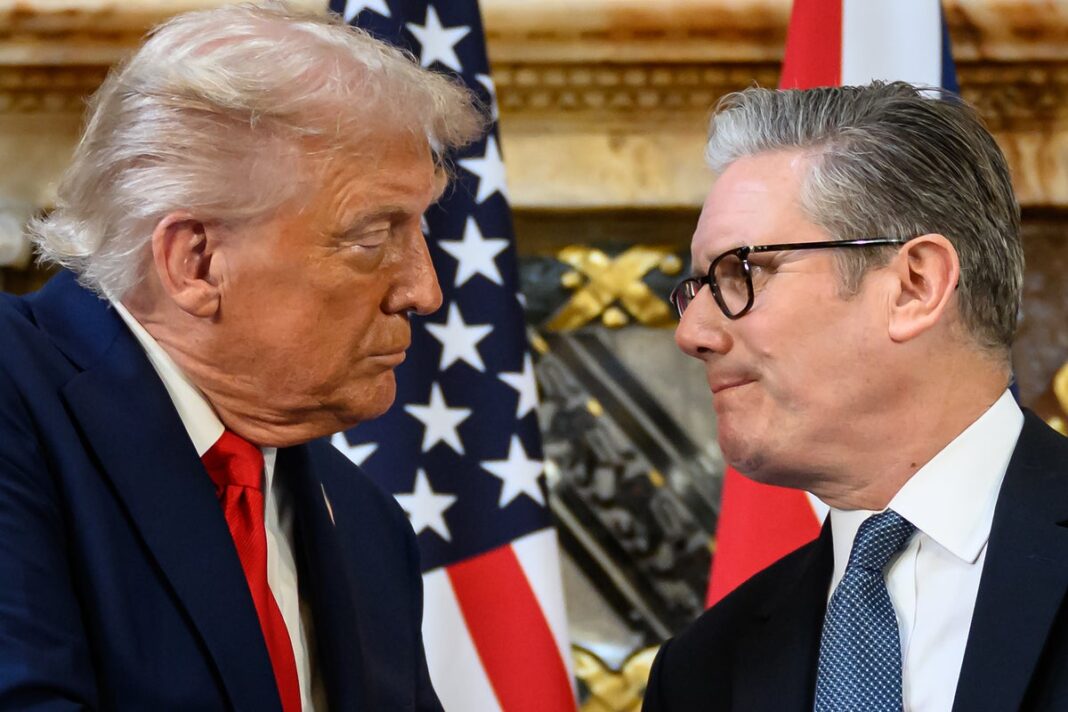Unprecedented Pause: UK Intelligence Sharing with the US Amid Controversial Strikes
The United Kingdom has taken the significant and contentious step of halting certain intelligence-sharing arrangements with the United States. This pause stems from a growing concern that British intelligence could inadvertently implicate the UK in illegal military operations against vessels accused of drug trafficking in the Caribbean.
The Context of the Decision
According to a recent report from CNN, British officials came to this decision over a month ago. The backdrop of this decision is a series of lethal strikes initiated by the Trump administration. These strikes targeted vessels that the U.S. government labeled as operated by so-called “narcoterrorists,” a designation carrying considerable weight given the current climate surrounding drug-related violence in the region.
This shift raises pressing questions about the future of U.S.-UK intelligence cooperation, especially in light of historical commitments made by both nations to combat drug trafficking and organized crime on a global scale.
The Nature of the Strikes
The U.S. strikes, carried out primarily in international waters, have resulted in numerous casualties, with reports indicating that dozens have lost their lives. The identities of those killed have not been disclosed, complicating public understanding of the ramifications of these operations. Investigations have revealed that many of the deceased were involved in minor, local drug trafficking operations, often on a temporary basis.
The distinction between law enforcement and military action has become increasingly murky, as the U.S. has leaned into the portrayal of these strikes as a necessary measure in the ongoing war against drugs. However, critics, including media outlets like the Associated Press, have categorized these actions as extrajudicial killings, raising ethical and legal concerns.
Canada’s Concern
Complicating matters further, Canada has voiced its apprehensions regarding its intelligence being utilized to support these controversial military operations. Canadian officials made it clear to the U.S. that they do not wish to play a role in targeting vessels for strikes that result in loss of life, underscoring a shared unease among allies about the legality and morality of these actions.
The Legal Framework Under Scrutiny
Critics of the Trump administration’s strategy point to a critical legal dilemma. Independent experts appointed by the U.N. Human Rights Council acknowledged the administration’s justifications but reiterated that the use of lethal force in international waters lacks proper legal foundation. They highlighted that such actions could be considered extrajudicial executions, contradicting established international laws governing the seas.
This viewpoint has echoed not only among human rights advocates but also from within political circles in the U.S. Even some members of Trump’s own party have raised their voices against these actions. Nevertheless, an attempt in the Senate to enforce checks on the president’s military powers under the War Powers Resolution was defeated, reflecting the contentious political atmosphere.
Escalation of Military Presence
As the strikes have persisted, the Trump administration has amplified its rhetoric against the Venezuelan government, deeming it illegitimate and denouncing its recent elections as fraudulent. In response to heightened tensions, the U.S. has increased its military presence in the region, deploying substantial naval resources, including guided missile destroyers, F-35 fighter jets, and a nuclear submarine, along with a troop deployment of approximately 6,500 soldiers.
This bolstered military posture raises alarming speculation about a potential ground invasion, a scenario that President Trump has publicly downplayed, although his statements on the matter remain ambiguous at best.
Trump’s Stance on Military Action
Trump has consistently threaded a careful line in discussing U.S. military objectives in Venezuela. While maintaining a facade of restraint, he has indicated a willingness to implement lethal measures against those engaged in drug trafficking. “We’re going to kill people that are bringing drugs into our country, OK?” he stated at a recent event, drawing mixed reactions from lawmakers and the public alike.
Further complicating the narrative, reports suggest that Trump has been reviewing options for military strikes targeting narcotics operations within Venezuela itself, although details about potential military targets remain uncertain. This veiled approach confounds both domestic observers and international allies, raising questions about the strategic and ethical boundaries of U.S. military involvement in sovereign nations.
Conclusion
The interplay between legal frameworks, international cooperation, and military strategy in addressing drug trafficking underscores a pivotal moment in U.S.-UK relations. As the narrative continues to evolve, the balance between combating drug-related crime and upholding fundamental human rights will remain at the forefront of this ongoing debate.



